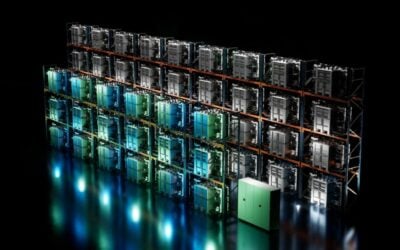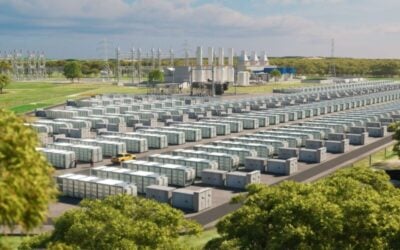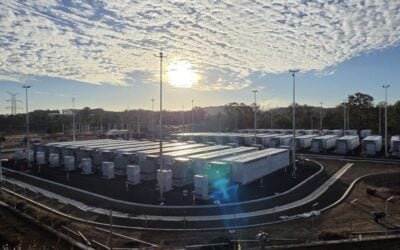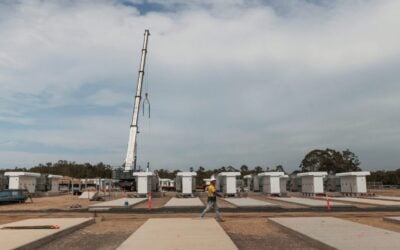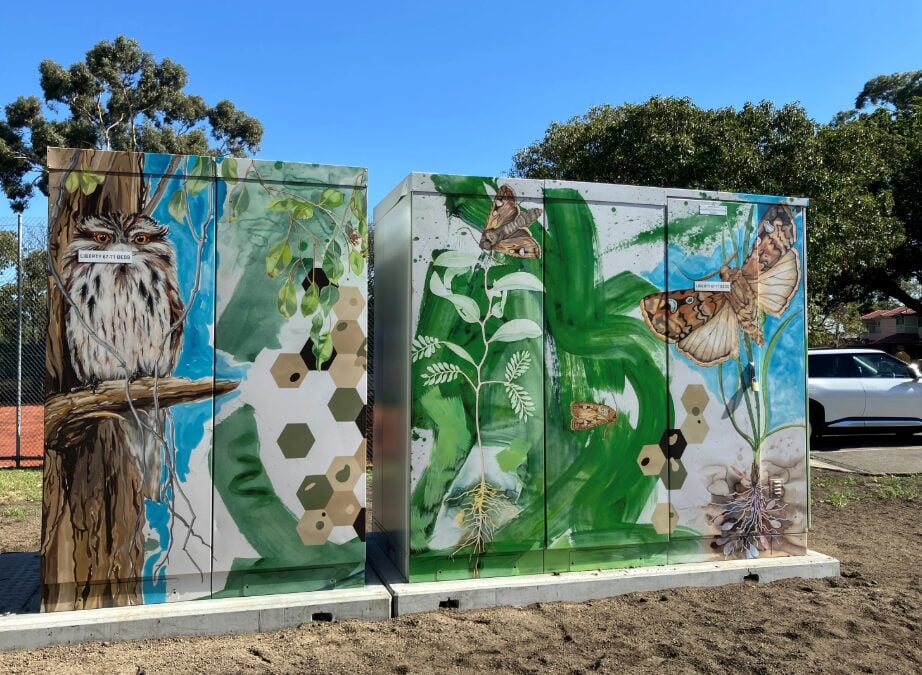
Australian energy infrastructure company Jemena has switched on two new 400kWh community batteries in Bellfield and Coburg in Victoria, Australia.
The community battery energy storage systems (BESS) are Jemena’s first to be developed in the north-west of Melbourne. They will support the uptake of rooftop solar PV systems in the local vicinity.
Jemena confirmed that the community batteries had been supported via the Australian government’s Community Batteries for Household Solar programme. This programme, administered by the Australian Renewable Energy Agency (ARENA), aims to install 400 batteries nationwide to help support the energy transition and increase accessibility to solar PV-derived energy.
Community batteries have become increasingly prominent in Australia, primarily because the country has the world’s highest solar energy generation per capita. Rooftop solar PV generation surpassed coal-fired generation at the end of 2024 and recently reached the 25GW mark.
Try Premium for just $1
- Full premium access for the first month at only $1
- Converts to an annual rate after 30 days unless cancelled
- Cancel anytime during the trial period
Premium Benefits
- Expert industry analysis and interviews
- Digital access to PV Tech Power journal
- Exclusive event discounts
Or get the full Premium subscription right away
Or continue reading this article for free
Community battery development has increased in regions such as New South Wales and Victoria. For instance, Australian network company Ausgrid has been building a portfolio of community batteries across Sydney and its surrounding suburbs. However, their uptake has required support from national and state subsidy schemes, such as the ARENA programme.
Shaun Reardon, Jemena’s executive general manager of networks, noted that coupling community batteries and rooftop solar PV could help stabilise the grid, enabling more homes in Melbourne to transition to renewable energy.
“Over the next 10 years, the number of our electricity customers with rooftop solar is set to double from 15% to around 32%. Installing community batteries in areas with a high uptake of rooftop solar is one of the ways we are preparing our network for the future,” Reardon said.
“Community batteries charge during the day when there is often a peak in solar generation and surplus solar energy available. They then discharge later in the evening when solar generation has reduced, but there is higher demand for electricity as more people are at home.”
Australia’s community battery leadership void
During the Energy Storage Summit Australia 2025, Dr Emi Gui, energy transition programme lead at Monash Energy Institute, a community energy research group at Monash University, said that Australia currently lacks a leader in the community battery space who can spearhead its development.
“There is a void in the marketplace for some entity to drive Australia’s community batteries forward,” said the academic at Monash University.
Dr Gui explained that there is an opportunity in the market for an organisation willing to combine innovative approaches in community battery business models with active engagement from the communities themselves, tailoring the service to meet their specific needs.
“How scalable community batteries will be depends on the market innovation or the stakeholder innovation. In terms of supporting the environment for the battery, it comes down to cost and convenience for consumers,” Dr Gui added.
Community batteries could earn up to AU$250,000 per year
Stace Tzamtzidis, solar, storage and EV regional director at energy management solutions provider GridBeyond Australia, said that a community BESS in the country could earn up to AU$250,000 a year in an article for Energy-Storage.news.
A community battery generates income by providing grid services such as frequency regulation, demand response, and energy arbitrage. Balancing supply and demand supports energy efficiency, reduces costs, and enhances grid stability.
According to Tzamtzidis, a 1MW community-owned battery enrolled in the Frequency Control Ancillary Services (FCAS) programme could generate AU$250,000/year in revenues for its community owners.
FCAS refers to the services used to maintain the electricity grid’s stability by controlling and balancing frequency fluctuations, ensuring supply and demand are matched in real-time.
Tzamtzidis adds that community-scale storage could provide significant net value by stacking multiple value streams while also achieving economies of scale. However, this depends on accurately locating community-scale storage projects in high-value locations on the grid and monetising the value they bring.

